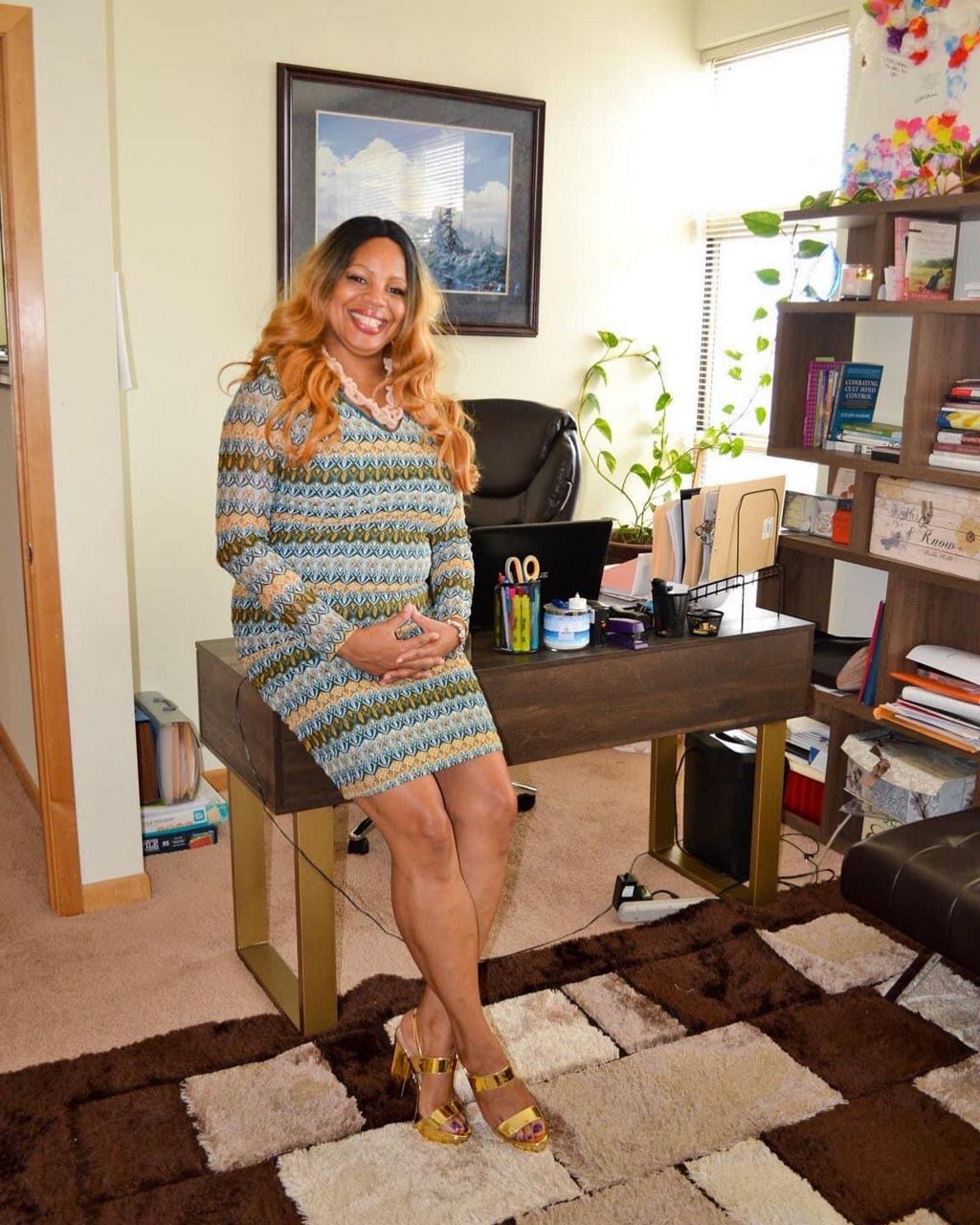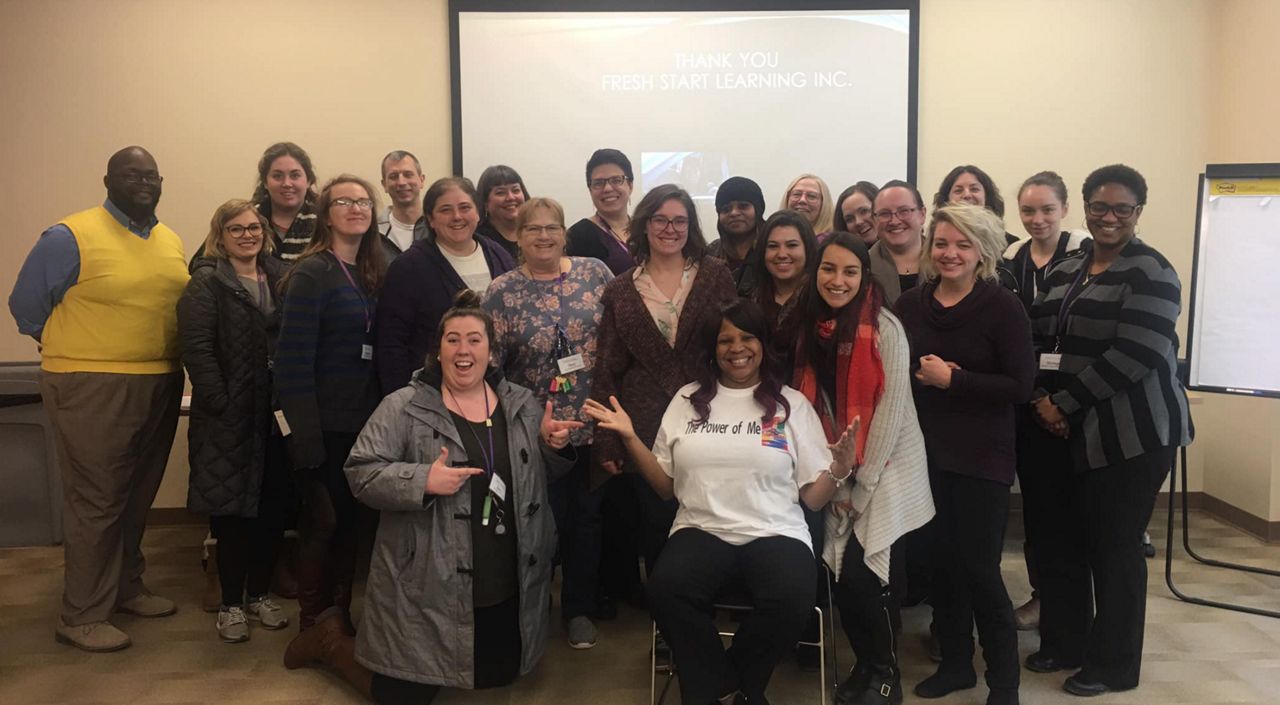Editor’s note: Fifth in a five-part series on human trafficking in Wisconsin: Woman who was sex trafficked for over 13 years now helps victims.
This story discusses some potentially disturbing and upsetting subject matters. Reader discretion is advised.
There were many days when Nancy Yarbrough wondered if she would ever get to the other side. She was living a life she did not want. She felt stuck. And while there were many doors around her to walk through, none said “Exit.”
What You Need To Know
- Nancy Yarbrough was a victim of sex trafficking for about 13 years; her first sexual experience was being raped
- She said the clientele came from all walks of life
- Truck stops along the I-94 corridor between Milwaukee and Madison are where her sex trafficking experience began
- Today, Yarbrough helps victims through the agency she started called Fresh Start Learning
But by God’s grace, she said, she made it through. And that rather innocuous adverb has become her favorite word on the planet. She owns it and is proud of it.
“I always tell people the most powerful word that I had, that God has given me thus far, is the ability to say ‘through,’” said Yarbrough. “Because of the forward motion. I went through it, you know. I’m not in it.
“I still have some residue around my heart from not trusting people and not knowing if I should or could be loved for real. But for the most part, I’m completely home. You know, everything that was broken is now being put back in place the right way; that yesterday was yesterday.”
Yesterday, Nancy Yarbrough was a victim of sex trafficking. For roughly 13 years, truck stops and hotel rooms and private parties were her life. This is how she got through.
****
Yarbrough will tell you she was raised the right way. Her parents showed her love. Her dad was a pastor, and he instilled a strong religious base.
But none of those things could protect her from the traumas that tormented her from an early age.
“So, my journey began when I was younger, way younger than I needed to have had somebody touch me inappropriately,” Yarbrough said, “and not know how to respond. So, my first interaction with being exploited was unwanted touches.”
It was by people she knew. But she didn’t know how to tell her parents. She kept it a secret.
Then her parents got divorced.
“We no longer had my dad in the house,” she said. “And my brother became the man of the house and things started going in all types of directions that it shouldn’t have as a young girl.”
She began to seek attention, especially from men.

“That caused me to be raped for the first time, for my first sexual experience,” she said. “So, it was trauma upon trauma. Being bullied, ostracized, teased at school, start entertaining marijuana, start drinking at a young age and hanging around an older crowd. That’s when the solicitation happened for me.”
She said it wasn’t referred to as sex trafficking back then. They introduced it as an opportunity to make extra money.
“In a way, that seemed OK to me because I was always so far out there,” Yarbrough said. “And now, I started using harder drugs. Now, I’m thinking about, ‘Hey, I’m already having sex, and I’m not getting paid for it.’ And that’s how he introduced it. In other words, ‘You already a little Ho, you might as well be a paid Ho.’ So, he didn’t make it glamorized or anything. He just said it the way that we were living, that lifestyle.
“He was way older than me. And I just figured, why not? I’m already doing everything else. Let me see if I can find some creature comforts, in all the hurt that I’ve experienced thus far. So, I’m like 16 or 17. I had already had an abortion, had my first child and started experiencing a different type of the underbelly. The different type of world that is hidden in plain sight.”
****
Truck stops along the I-94 corridor between Milwaukee and Madison are where it began.
“We had to be groomed on what to watch for, in regard to the trucks,” she said. “Learn the names and kinds of trucks. Learn the CB language. So that you don’t end up getting arrested. How to vet the person that you’re talking with to make sure they’re not police officers.
“It was just a whole organized way of life.”
She said one truck stop was for Black women, the other for white women. Because she had blond hair, was petite and had a fair complexion, her groomer allowed her to work with the white women.
“We got paid more over there,” she said.
Each day, she was responsible for turning over a “stack” to her trafficker.
“At least $1,000 a night,” she said. “The bare minimum.”
Yarbrough said many factors played into the money it could pay her.
“It just depends on the day,” she said. “It depends on the county or the state that you are in. The younger you were, the more money you made. If you can continue to do parties and things like that, accompany with, one on one, that you can make anywhere between $2,000 to $5,000 to $10,000 to $100. Depends on your clientele.”
And the clientele came from all walks of life.
“It can be anywhere between a Wall Street guy, the priest, the corner store guy, the guy that drives the liquor truck,” she said. “I had all kinds of buyers, particularly when I talked about my first experience being groomed, at the truck stop.
“But there was the other part of it when you market yourself. Then you were dealing with all types of guys, you know, married guys, unmarried guys, a married guy and his wife, those kinds of things. It depends on their appetite.”
****
The first time she heard the message, she took it in. And she never forgot it.
“I got in the truck — and I always call it my olive branches of love, my breadcrumbs from God — because it was amazing things that ended up happening that kept me safe and secure,” Yarbrough said. “Anyway, I got in the guy’s truck. He was like, ‘What are you doing out here? You’re not supposed to be out here. Why don’t you just go to sleep.’ Now, mind you, he could have been a serial killer. I wouldn’t have known.
“He said, ‘OK, so I’m gonna give you the money you’re supposed to have to be with me over this time. But you get you some rest.’ So, I crawled back to the cabin and went to sleep and he dropped me back off at the motel room.”
Then she received another message that was far different from the one she heard earlier.
“And, when I got in that morning, I’m greeting my man — now you know he’s a trafficker — but my man,” she said. “I was like, ‘Hey, like this guy just dropped me off and he let me sleep.’ And he’s looking for the normal thing I do, take the money out and hand it to him. And so, I did that, and then when he looked at it, he was like, ‘Where’s the rest of it?’
“I said, ‘That’s all, because he let me sleep.’ And then POW, he hit me. And that is when my whole world about this so-called loving, caring relationship kind of thing — it didn’t make sense to me anymore.”
She said at the time, she had no idea there was such a thing as a quota. But getting beat up did not provide an incentive to break away. Quite the opposite.
“It was just a moment in my life where I felt like, ‘What just happened?’” she said. “Took me all the way back to the time that I was always trying to people please. So now, all of a sudden, the guy that I love, he doesn’t love me anymore. So, I gotta figure out how to make him love me again.”
Then along came another breadcrumb. She was up north, and another night at a truck stop had come to an end. Yarbrough and the woman who showed her the ropes got to talking.
“She was like ‘You don’t belong here. Like, you need to go home,’” Yarbrough said of the conversation. “And I didn’t understand what was going on. I didn’t know if it was a setup. Was she trying to get me in trouble? But we talked for a while, and she ended up taking me home that day.”
Her trafficker found out. He came back to get her, threatened her, and then tried to romance her. But she never went back.
“Was my life over with trafficking at that time?” she said. “With a perpetrator, with a trafficker, a boyfriend kind of trafficking. But then I started self-trafficking, because now I had this whole drug addiction that I needed to take care of. So, I started learning how to do things on my own.”
She pulled other women in with her and treated them far better than she had been treated.
“Looking back on it in hindsight, I was a trafficker, too,” she said. “Made it seem like it was a better way to, you know, to be. And it was the same way that somebody duped me. So, it’s a vicious cycle.
“The days I got tired, sick and tired, was years and years later. Because there’s so many levels to this.”
Around the age of 30, she finally realized where the “Exit” door was. She retreated to her youth and the things her father taught her. She gave her life to Jesus and stopped using drugs and alcohol. She would get married, then divorced and raised her children while going back to school.
“My decision to give my life to Christ was my biggest, you know, stick and stay,” she said. “I learned how to love me. I learned that there was a higher power greater than me that loves me more than I could ever love myself. Then, I had to rally around the faith-based kind of love that I always had, but pushed away because of my shame and guilt. Then I started having other people that understood kind of what I was going through.”
She would go on to become the founder and executive director of Fresh Start Learning, a Milwaukee-based organization that uses outreach and advocacy for domestic violence, human trafficking and other struggles that plague our society.
****
Ask Nancy Yarbrough why she’s so willing to share her journey. There is no hesitation when offering an answer.
“Because, that keyword, I went through it,” she said. “It’s a forward motion. I’m no longer there anymore. And every day that God allows me to go through, helping somebody else either to get out, never get in, or stay out, then I am completely, with my hands lifted, naked and unashamed. I will tell all of it at this point to help someone else.
“Because I figured this, when you wear the title survivor, then that means that you went through something that most people can’t. And you wear that title survivor, that means that I can tell you something, so you don’t have to get involved with something like this. When you wear that title survivor, it means I can teach somebody something to help those that they encounter so they don’t have to go through it. So, I wear that badge of honor, with all due respect, proudly today because I not only survived, I thrived. So, because of that I want to make sure that I’m paying it forward. And I’m paying it forward.”



